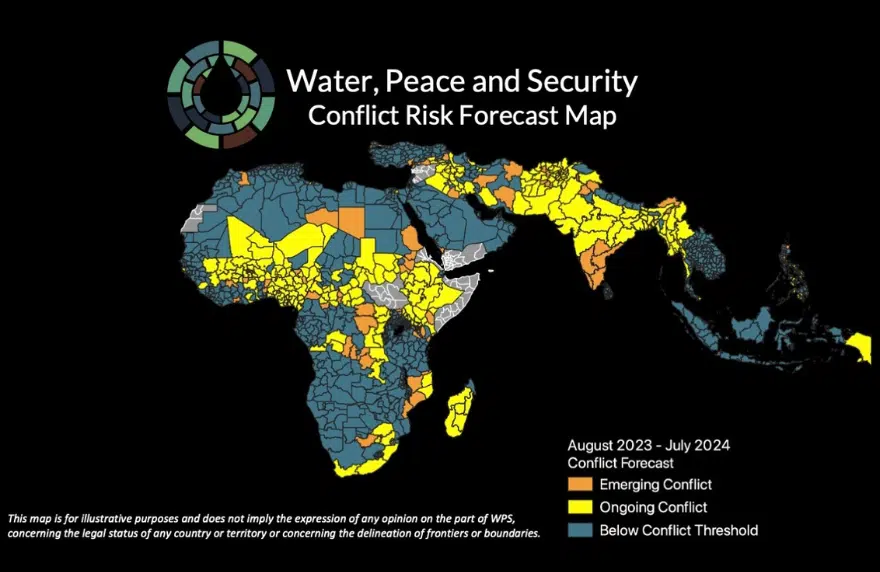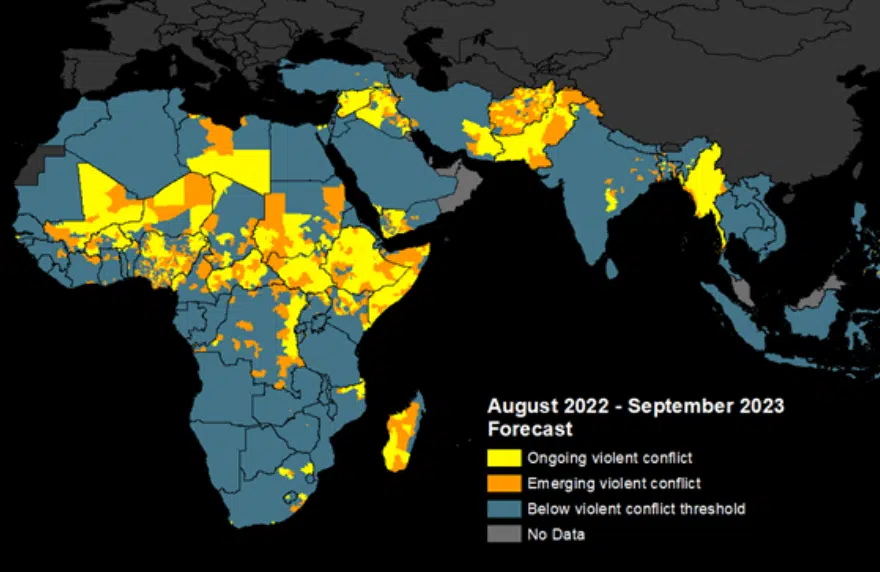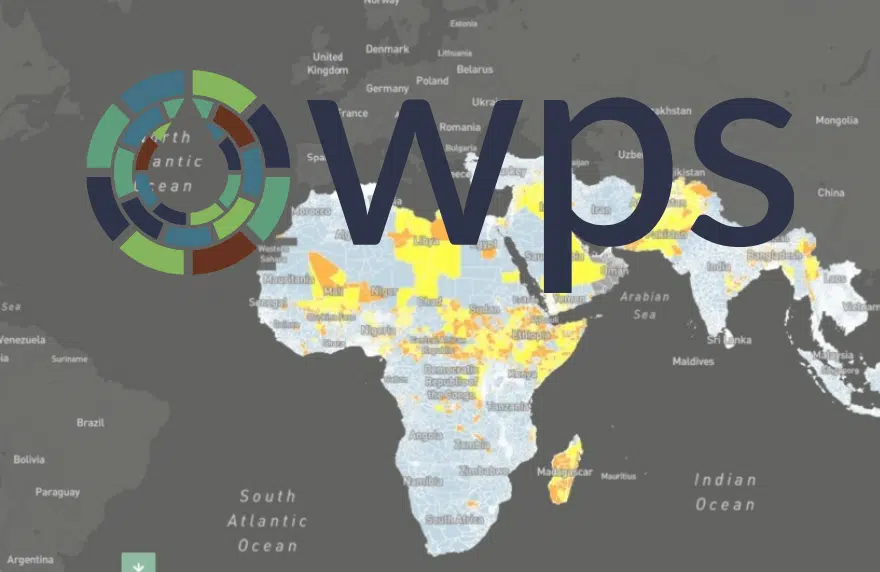With the planet’s average daily temperature soaring to levels unseen in modern record-keeping, persistent droughts and severe flooding, several countries in Africa, the Middle East and Asia are at risk of emerging of ongoing conflict related to water, according to a new quarterly update that analyses findings from a global early warning tool.
The analysis, issued by the Water, Peace and Security (WPS) partnership, predicts ongoing and emerging conflict over the coming 12 months throughout much of East Africa. It notes that this year’s good rainy season, from March to May, could not reverse the cumulative impact of the long drought that has plagued the East Africa region, and that food insecurity has reached unprecedented levels. In Sudan, already suffering from four months of conflict, there are fears that water shortages and a lack of sanitation services could lead to a cholera outbreak, in particular in refugee camps at Sudan-Chad border.
The tool applies machine learning to predict the likelihood of conflict up to a year in advance. The WPS partnership’s latest update is based on analysis conducted since the last update of May 2023 to date and focuses on the next 12 months.
“It is clear that the water crisis in East Africa is not going away. The water shortage and food insecurity add to challenges facing the area, and fuel tensions that can lead to conflict or intensify ongoing conflicts,” said WPS coordinator Yasir Mohamed, IHE Delft Associate Professor of Water Resource Management.
In the Middle East, the tool warned of emerging or continued conflict in Syria, Iraq, parts of Iran and Afghanistan, all of which are facing water shortages that compound other challenges. It noted that the water crisis has forced rural communities in Iraq off their lands, and that taps in Tehran, Iran ran empty.
“Unprecedented drought and decades of water resources management are making conditions ‘untenable’ throughout Iran, but the government refuses to take responsibility,” the update said, adding that tensions between Iran and Afghanistan over the latter’s water rights from the Helmand River are escalating.
The update warned of the risk for violent conflict in part of Pakistan, which is still struggling with the impact of the 2022 record-breaking flooding, including underweight and stunted children and outbreaks of diarrhoea, malaria and dengue fever. It also predicted ongoing and emerging conflict in parts of India, which is struggling with flooding of a Ganges tributary that flows through New Delhi.
About the Water, Peace and Security partnership
The tool is developed and maintained by the IHE Delft-led WPS partnership, funded by the Netherlands Ministry of Foreign Affairs. Partners include the World Resources Institute, Deltares, The Hague Centre for Strategic Studies , Wetlands International and International Alert as well as Oregon State University and Clingendael – the Netherlands Institute of International Relations as associated partners.
The WPS partnership was set up in 2018 to pioneer the development of innovative information tools and practical approaches that can support local and international actors who work in areas where with water-related risk. These tools and approaches can help predict the likelihood of and prevent water-related security threats in a timely manner.








